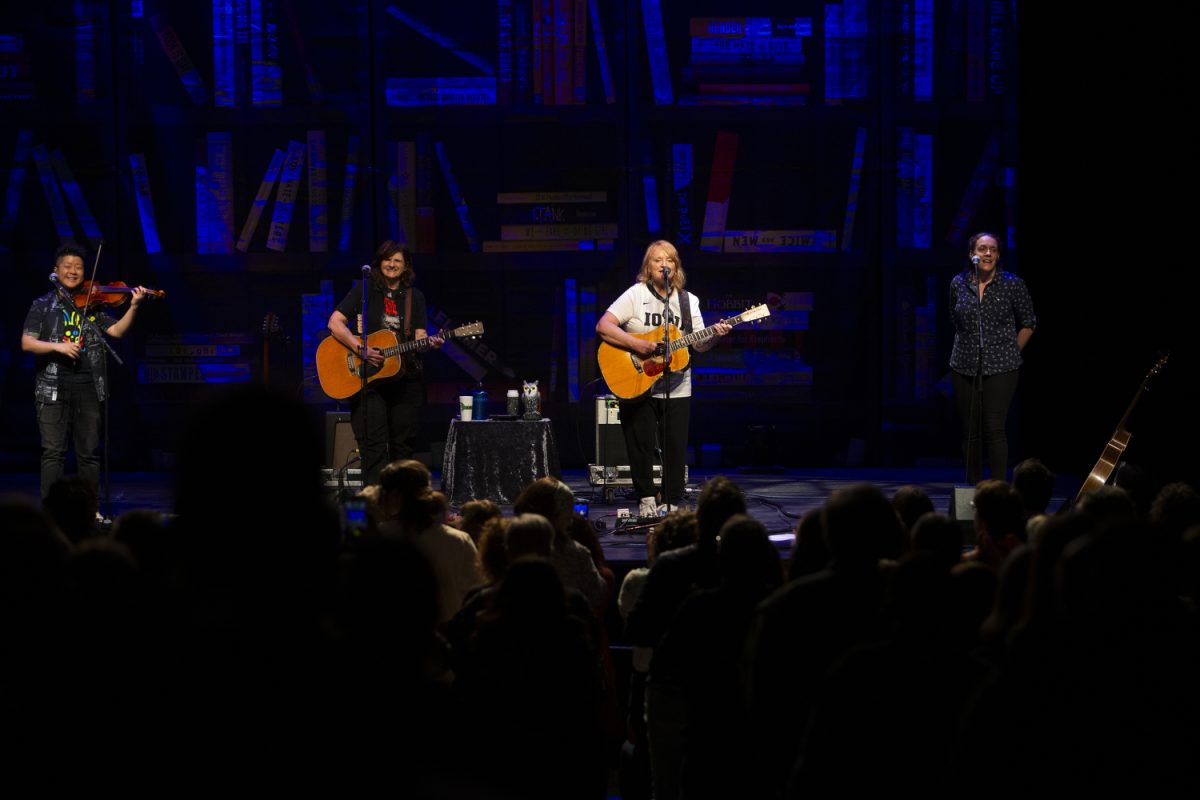University of Iowa Professor David Dowling searches for the truth of events in Herman Melville’s most famous novel.
By Isaac Hamlet
The notion of man versus the wild has been played out by any number of human characters facing every imaginable force nature might muster. Though perhaps none is more present in our culture than Captain Ahab’s death grapple with the famous white whale, a story that stems from popularized actual events that were twisted even in their initial telling.
At 7 p.m. today at Prairie Lights, 15 S. Dubuque St., University of Iowa Associate Professor David Dowling will give a talk on his new book, Surviving the Essex.
The book is Dowling’s attempt to hunt down the “real” Ahab. His research started after a conversation with his editor in the Mill, discussing an old wrecked ship discovered northwest of Hawaii.
“The ship is an antebellum whaler, the only known antebellum whaling ship to be discovered in all of the seas,” Dowling said. “The only one of its kind, which is of interest to anyone who knows of Moby-Dick.”
The ruined ship, Two Brothers, was the second ship captained by George Polland Jr. The first being the Essex, which sank after being rammed by a sperm whale.
At the time, Dowling remembers, many on the Internet proclaimed Polland the real-life basis for the famous fictional character. Dowling, however, wasn’t convinced.
“Captain Ahab was sort of top down, authoritarian, dictatorial,” he said. “We use Ahabian as an adjective to describe that style of leadership. Pollard was anything but; he was very democratic in his leadership style. He would always sound out the view of the crew before making any major decisions.”
The ship did, however, have a first mate, Owen Chase, who much more closely resembles the image of an Ahab. After The Essex was rammed, Chase insisted that crew make for Chile rather than stop at closer Tahiti.
“Ironic, because they turned into cannibals because they ran out of provisions,” Dowling said. “Melville discovered when he looks into it himself that the Tahitian Islands had some cannibals, but it would have been almost totally taken over and dominated by Western missionaries. They would have been fine.”
Of the 20 crew members who ran ashore, eight of them survived, including Polland, Chase, and the cabin boy, Thomas Nickerson. It’s these three characters and their lives after The Essex that the book focuses on.
All three of them had their own accounts of events, but Chase’s arose as the most popular. Though there is one important character who never got a voice in the story.
“The whale was, of course, maligned and turned into a villain by Chase in his version,” Dowling said. “Of course that rubs against the fact that whales don’t just ram ships on purpose, they’re not aggressive creatures, they’re not sharks. So I defend and speak for the whale for his lack of defense.”
His speculation — corroborated by Louie Psihoyos , the director of the documentary The Cove — is that the whale was likely fleeing another ship when it ran into The Essex.
In spite of the book’s subject and a small sperm whale figure sitting on the windowsill of his office, it’s not the whale that most interests Dowling.
“People will give me things like this [whale] thinking I’m far more interested in them than I really am,” he said. “The thing that I find more fascinating is the press in the story and how the dominant narrative can be built.”
WORDS
David Dowling Reading, Surviving the Essex
Where: Prairie Lights, 15 S. Dubuque
When: 7 p.m. today
Admission: Free









